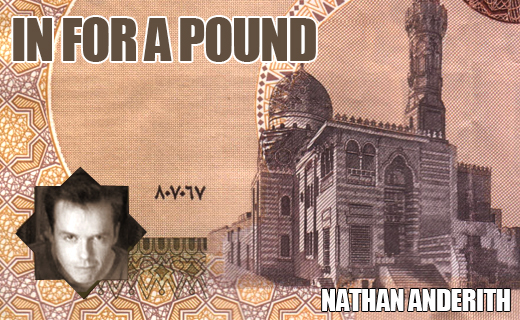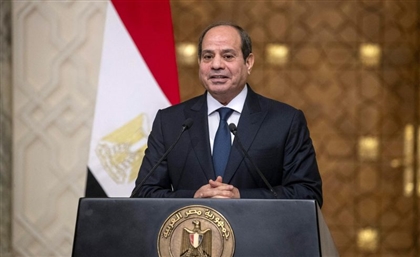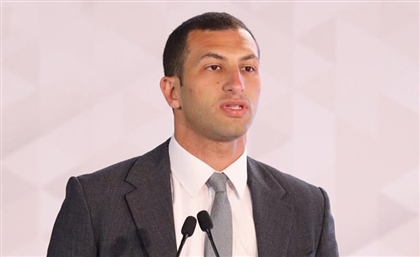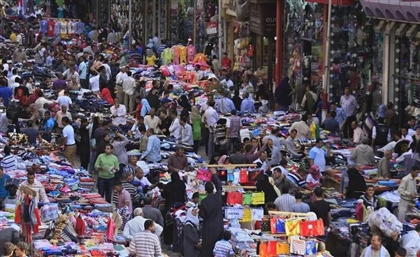Don't Fuck with the Opera
Nathan Anderith was disappointed when he went to Cairo Opera House only to find the cast and crew of Opera Aida on strike. However, given the importance creative industries have in Egypt's finances, he can't blame them. This is the economy of art...

My friends and I side-stepped to our seats, giving over-dressed theatre-goers close-up views of our pinstripe-clad backsides. I was excited. I’d been living in Cairo for almost a year, and I had yet to see an opera at the famous Cairo Opera House. This was a serious crack to my reputation as a pretentious, overly-cultured snob, and tonight I was finally getting the chance to correct that by subjecting myself to three hours of melodramatic wailing.
The curtain rose to reveal a stage absolutely packed with people. Actors, stagehands, costumers, techies – hundreds standing shoulder to shoulder, some in costumes, some in suits, some holding signs calling for the downfall of the regime. They shouted revolutionary slogans for a few minutes, and we all shouted back – “Yasqut, yasqut, hokm al-murshid! Irhal, Irhal!” Was this how they started shows since the revolution? Man, Egypt knows how to do opera right!
Then the director spoke. “We, the artists and staff of the Cairo Opera House, have decided to refrain from performing the Opera Aida tonight. We are halting all activities until the removal of the Minister of Culture.” The goddamn opera was on strike.
Some of the audience cheered, some looked annoyed. Quite a few seemed to shared my friends’ sentiment – That’s great, you’re standing against oppression, but you can’t do it another night? A night when I don’t have tickets? My reaction was a little more big picture: the Brotherhood have no idea what they’re fucking with.

First a little background. A few weeks back, flooded by a rising tide of criticism,the government did what they always do in a crisis and fired half the Cabinet. They replaced them with people so magnificently unqualified that I have to assume that the ministerial positions were given away as raffle prizes at a Muslim Brotherhood costume party. The Minister of Finance is a professor of Sharia finance, the Minister of Investment is a Vodafone salesman, and the Minister of Culture is an obscure film critic, one who apparently likes to carry a grudge. In three weeks he’s fired three leading figures of cultural organisations. They’re all people who’ve pissed him off in the past, including the head of the Cairo Opera House, whose dismissal occasioned the strike and ruined my evening. This, by the way, coincided with an Islamist lawmaker demanding that ballet be forbidden in Egypt because it’s “the art of the nude.” If only that were true – think how much better attended all those mind-numbing Nutcracker shows would be.
So why is this important? Opera’s about more than fat ladies cracking wine glasses; it’s a visible manifestation of the artistic culture, a culture that’s absolutely crucial for economic development. Bet you didn’t know that the alphabet, arranged to vaguely resemble a forlon man was contributing to GDP growth, did you?

It works like this: we start off as commodity workers, doing stuff like farming and mining. Then we get bored and make the jump to industrial workers, taking those commodities and turning them into toasters and TVs. Then we get machines to do that and we become knowledge workers, sitting in offices and typing up invoices for all those fancy toasters we’ve made. Eventually, technology gets more advanced and even knowledge is made obsolete by Google, so we turn into creativity workers, dreaming up new types of toasters and new things to toast in them. Innovation becomes the currency of the day in just about every profession: accountants design new bookkeeping methods, doctors deal with strange new ailments, factory workers come up with efficiencies on the assembly line. Engineers, business managers, politicians - they’re all artists in their way, and they all need a culture of artistic expression to inspire them.
That’s where the opera comes in, along with the photographers and musicians and painters. These are the guys who create for the sake of creating, who push our boundaries and hold up mirrors to our flaws. Watching an opera might not make you a better office assistant, but it could put you in the mindset you need to re-design that inefficient filing system. We’re constantly picking up cues from our environment that minutely shape who we are, which is why it’s important that our environment includes people who aren’t afraid to come up with new ideas and shout them at the top of their lungs.
The idea of the creative class was started by a guy named Richard Florida, who found that cities with more art galleries and concert halls had better economic growth, especially in high-tech industries. They were more fun, too, with a more diverse population and a larger base of intelligent young people moving in from other cities. In fact, other than big oil producers, you’ll be hard pressed to find a country that saw a serious economic revival without a corresponding cultural revival to drive it forward.

All this is very good news for Egypt (Been a while since I’ve given you some of that, huh?). One of the most positive developments since the revolution has been the explosion of artistic expression, from visual arts to music to theatre to film. It seems like every week there’s a new Jazz festival or gallery opening – hell, outside the underground economy, art’s the only industry that’s been adding employment and increasing revenue.There was an amazing artistic festival called D-CAF in April that managed to book multiple acts every single night for a month. This kind of thing helps tourism, which is good, and it encourages educated young Egyptians to stick around instead of emigrating, which is better, but the real benefit is that it’s shaking up the calcified assumptions of this ancient country and encouraging some new ideas. It won’t be immediate, but soon you’ll start to see an increase in business startups and industry innovation.
That’s why the government doesn’t know what they’re fucking with. The opera is a symbol of Egypt’s creative class, and if they Brotherhoodize it, the country’s economy doesn’t have a chance. Go ahead and protest if you want (like I could stop you), but if you really want to help, go to a gallery. Watch a play. Actually listen to the band at a nightclub instead of just trying to get laid. This is a battlefield the Brotherhood has been too afraid to enter so far, and we need to win it, to own it, by expanding and empowering the art scene until it’s a cultural force to be reckoned with. Then maybe I’ll finally get to see Aida.
- Previous Article I Got Banged!
- Next Article Nomades Land
























